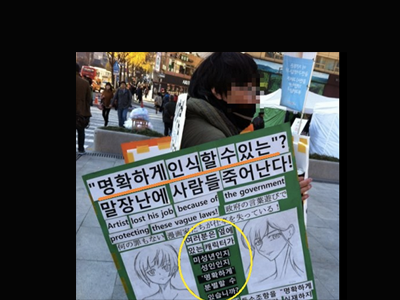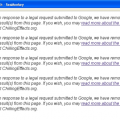Stories about Regulation from May, 2013
South Korea's Child Porn Law Blasted for Restricting Freedom of Expression
A new youth protection law in South Korea, meant to protect children by clamping down on child pornography, is being assailed for its broad language that labels net users who unknowingly download suspicious content and artists who depict children in their work as criminals.
Copyright Amendment Could Bring Web Filter System to Taiwan
Many Taiwanese believe that a recent proposed copyright amendment put forward by the government is a setback for democracy. The amendment would provide legal ground for ISP-level blocking of websites that violate copyright restrictions.
A Technological Solution to the Challenges of Online Defamation
When people are insulted or humiliated on the Internet, they often feel that someone should pay for the personal damages inflicted. Search engines have been this "someone" in many online defamation cases, a process that often results in search engines being forced to remove large amounts of content from search results. Is this the only way to address the issue? What if we could use technology to help satisfy the problem instead?
Thailand Threatens to Censor Online Critics of Prime Minister
In the wake of the Thai government's lawsuit against cartoonist Chai Rachawat, the country's Minister of Information and Communications Technology has warned that websites containing defamatory remarks against the Prime Minister will be immediately shut down.
Internet Governance and ICANN: Reflections from Beijing
Last month’s ICANN meeting in Beijing was the largest in the Internet governance body's history. Held in Beijing, the meeting, featured a broad range of topics that often connected complex issues such as top-level domain name allocation with issues of free expression and human rights on the Internet. This post offers readers an inside look at the ICANN in its current state.
Hungary: Government Limits FOIA Transparency Law
Last week, Parliamentarians in Hungary took action to change the country's Freedom of Information Act (FOIA) in an effort to limit the scope of data accessible to the public under the law. The Freedom of Information Act, known as Act CXII of 2011 in Hungary, is vital to the work of Hungarian journalists who cover government activity and corruption. If President János Áder signs the amendment, it will become law.






